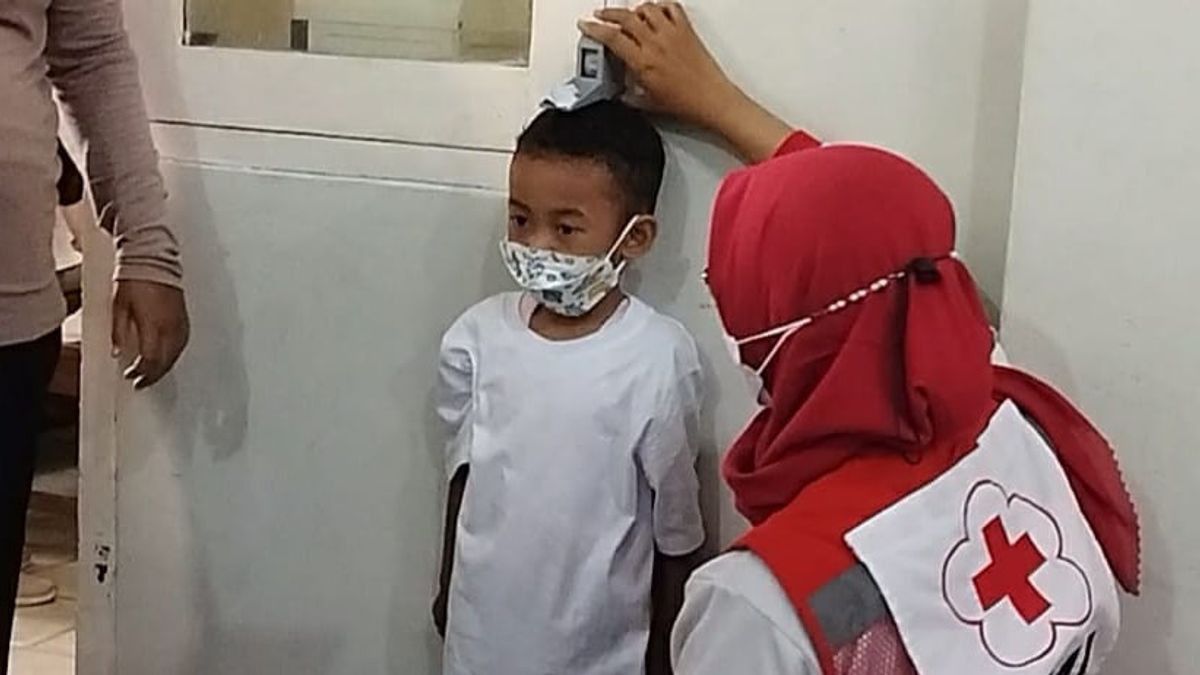
JAKARTA - Malnutrition in children under five years old (toddlers) is still the center of attention of the government at this time. As is known, poor nutrition in children will result in growth disorders such as a child's height is lower than his age standard, or stunting.
For the DKI Jakarta area, based on data from the Central Statistics Agency (BPS) of DKI Jakarta Province in 2020, the number of toddlers who have malnutrition is 6,047 toddlers.
The East Jakarta area is the highest contributor to cases of malnutrition, with 1,826 children under five. The second largest contributor was followed by the West Jakarta area with 1,823 children under five, the third position was followed by the Central Jakarta area with 989 children under five, the fourth in North Jakarta with 498 children under five and the smallest number in South Jakarta with only 108.
The high stunting rate in Jakarta responds to the DKI Jakarta Provincial Government (Pemprov) by targeting the stunting rate to decrease to 0 percent.
Chairman of the East Jakarta Indonesian Red Cross (PMI) HR Krisdianto said, in the current situation of the COVID-19 pandemic, many families have been forced to leave work or be sent home. This has an impact on the family economy.
"This family economy also has an impact on providing nutrition to our children under five. So that the lack of nutrition is given to these toddlers, the impact is very long. Of course it makes Indonesian human resources (HR) vulnerable, whether it's susceptible to disease," he said when contacted, Thursday 27 January.
As is known, the Coordinating Minister for Human Development and Culture Muhadjir Effendy, said the government targets the stunting rate in Indonesia to drop to 14 percent by 2024. So every year there needs to be a decline of around 3 percent. This was conveyed in the acceleration of online stunting reduction on January 20, last year.
The English, Chinese, Japanese, Arabic, and French versions are automatically generated by the AI. So there may still be inaccuracies in translating, please always see Indonesian as our main language. (system supported by DigitalSiber.id)







